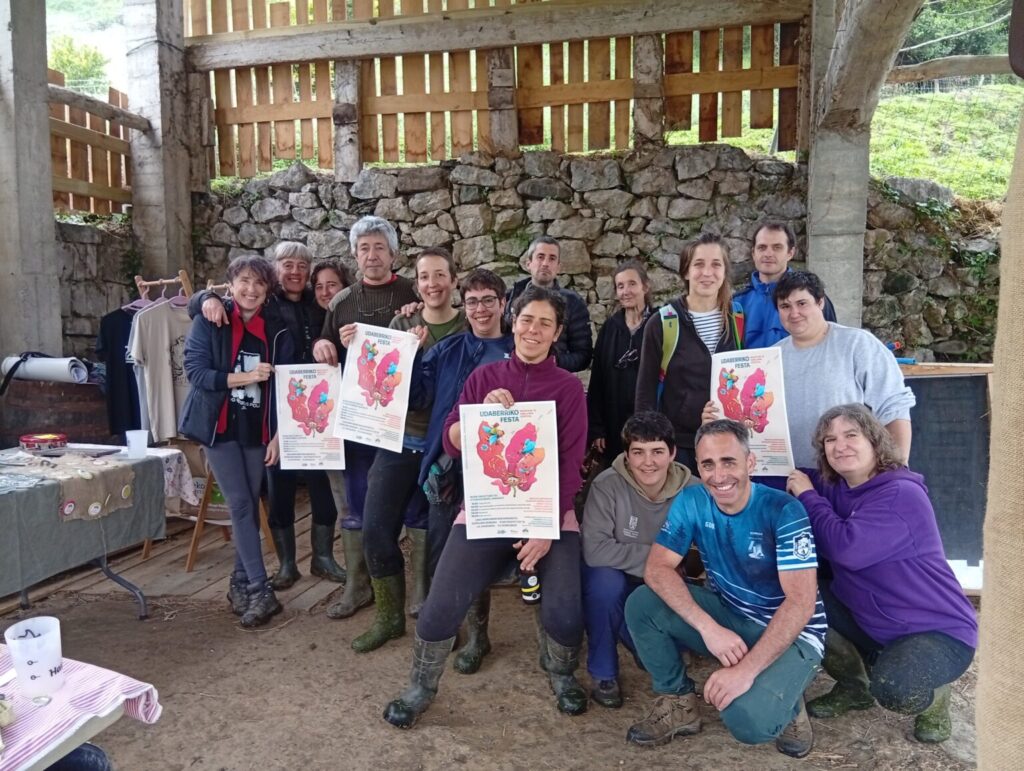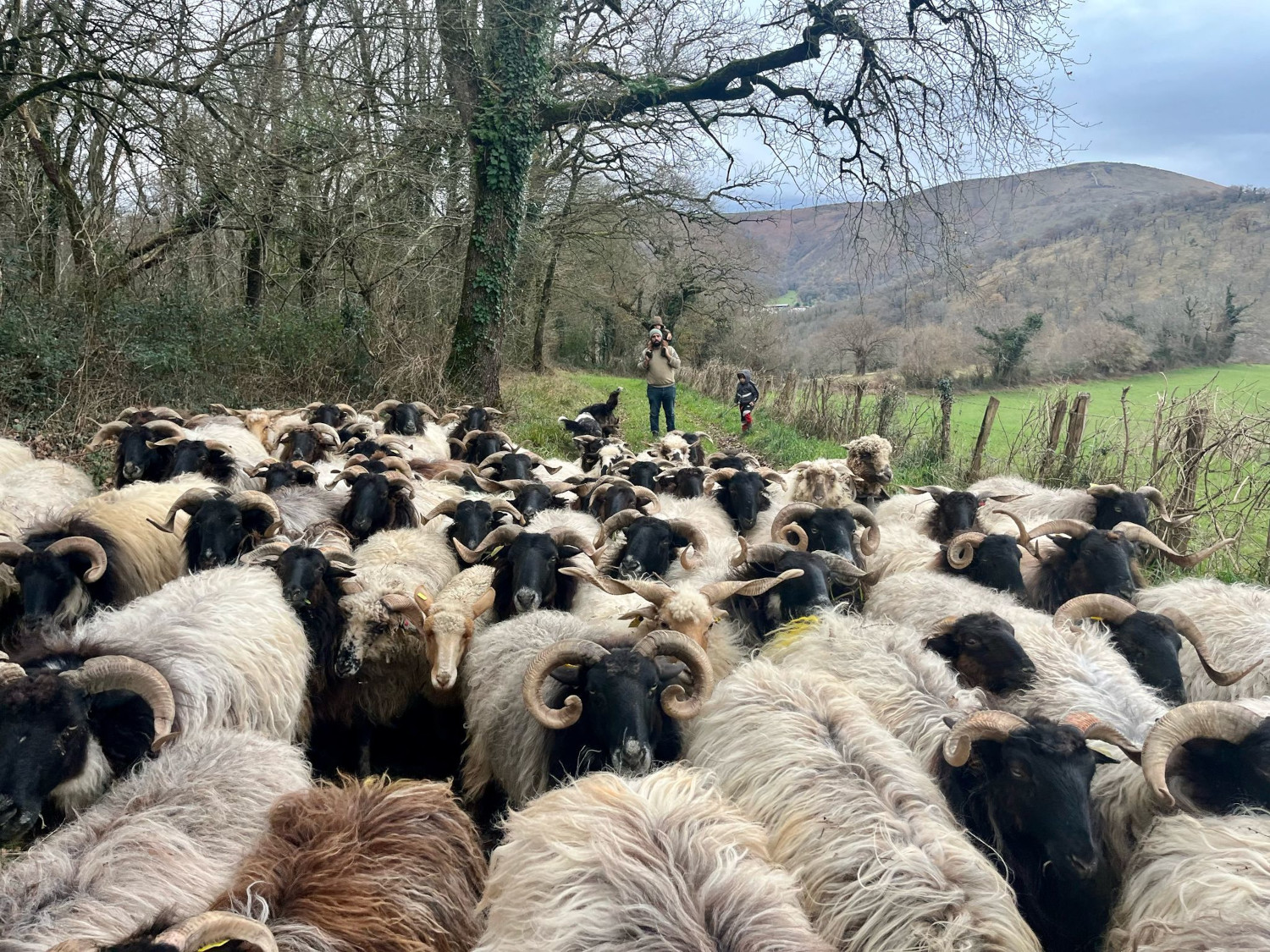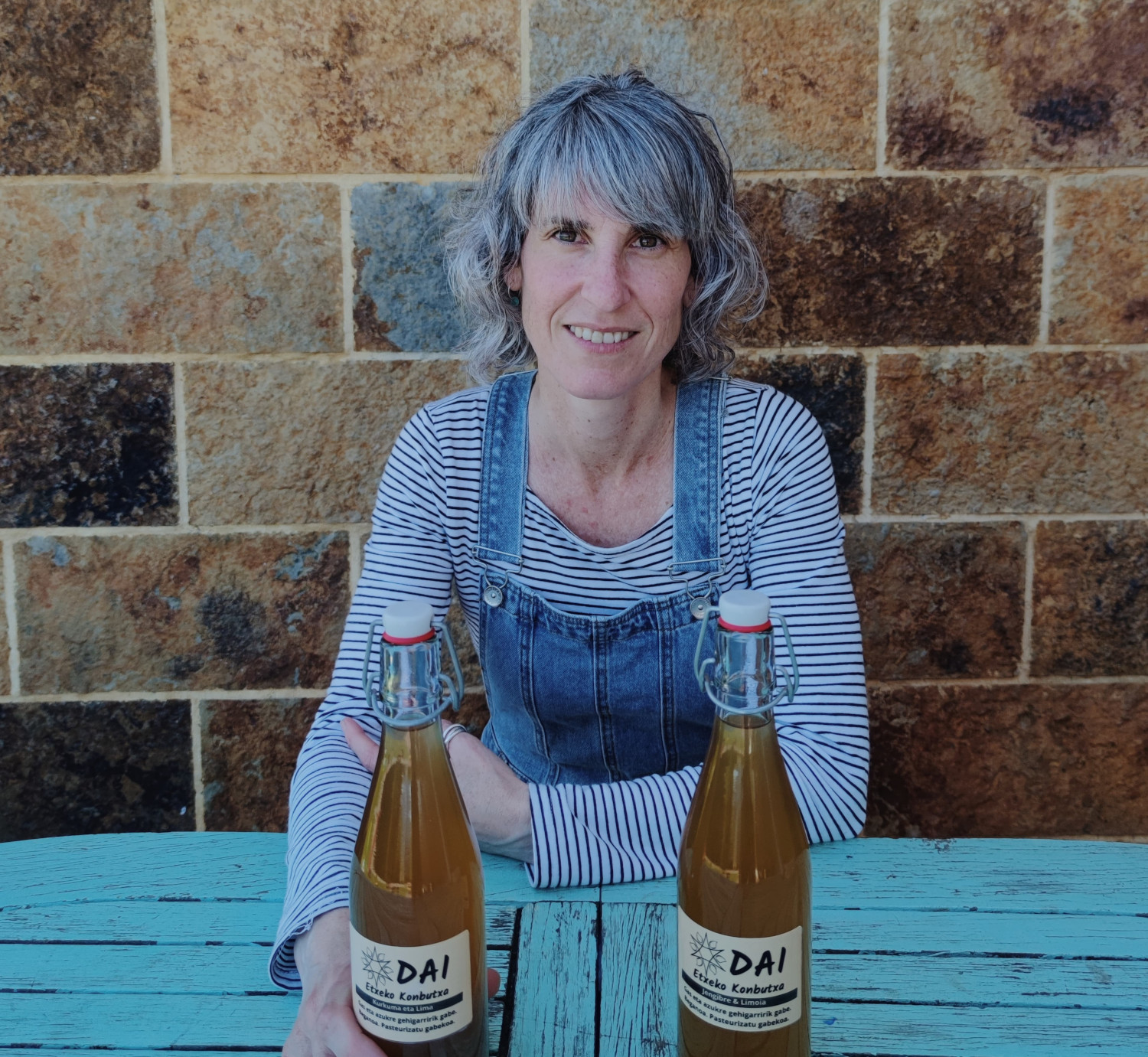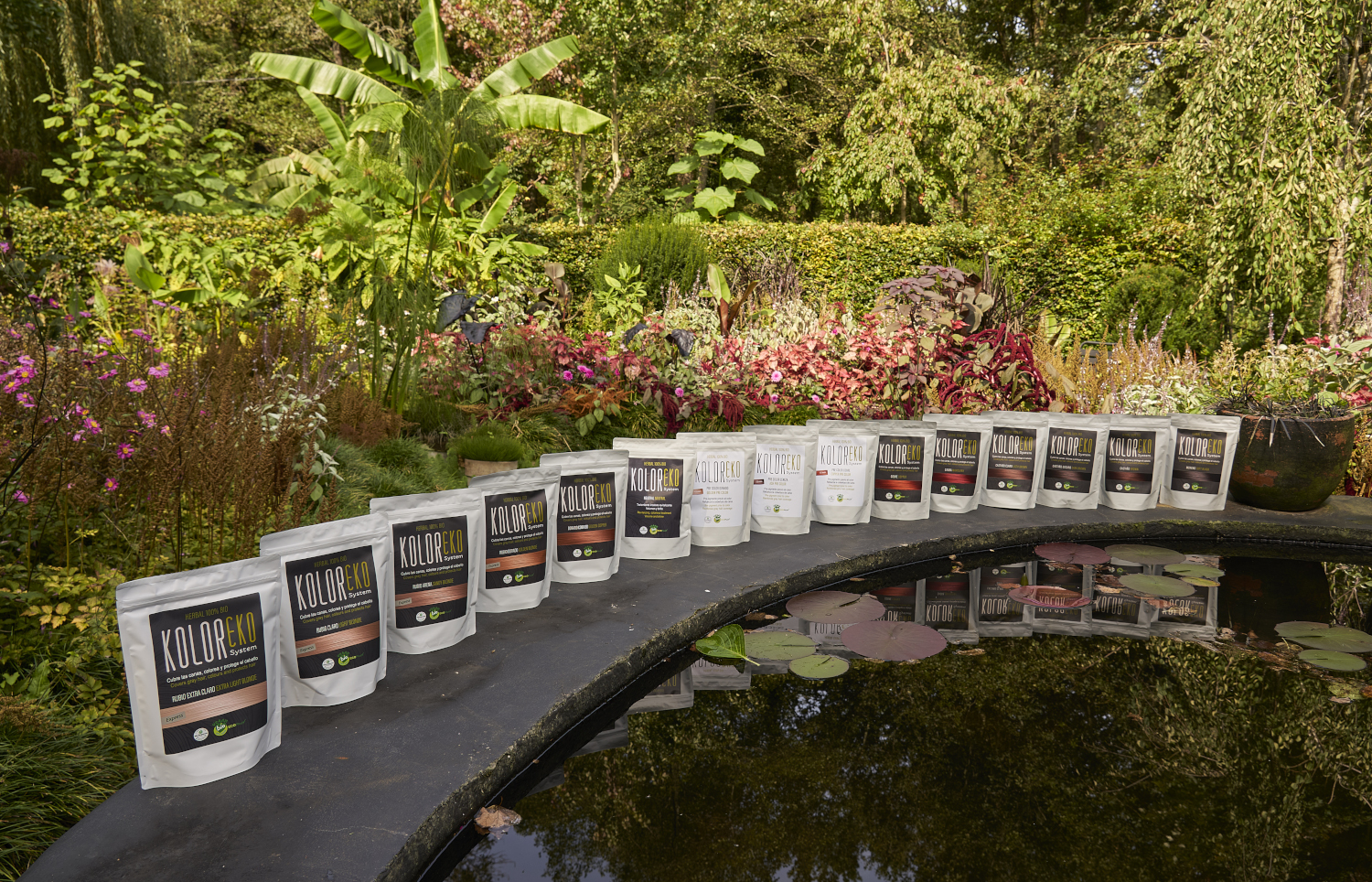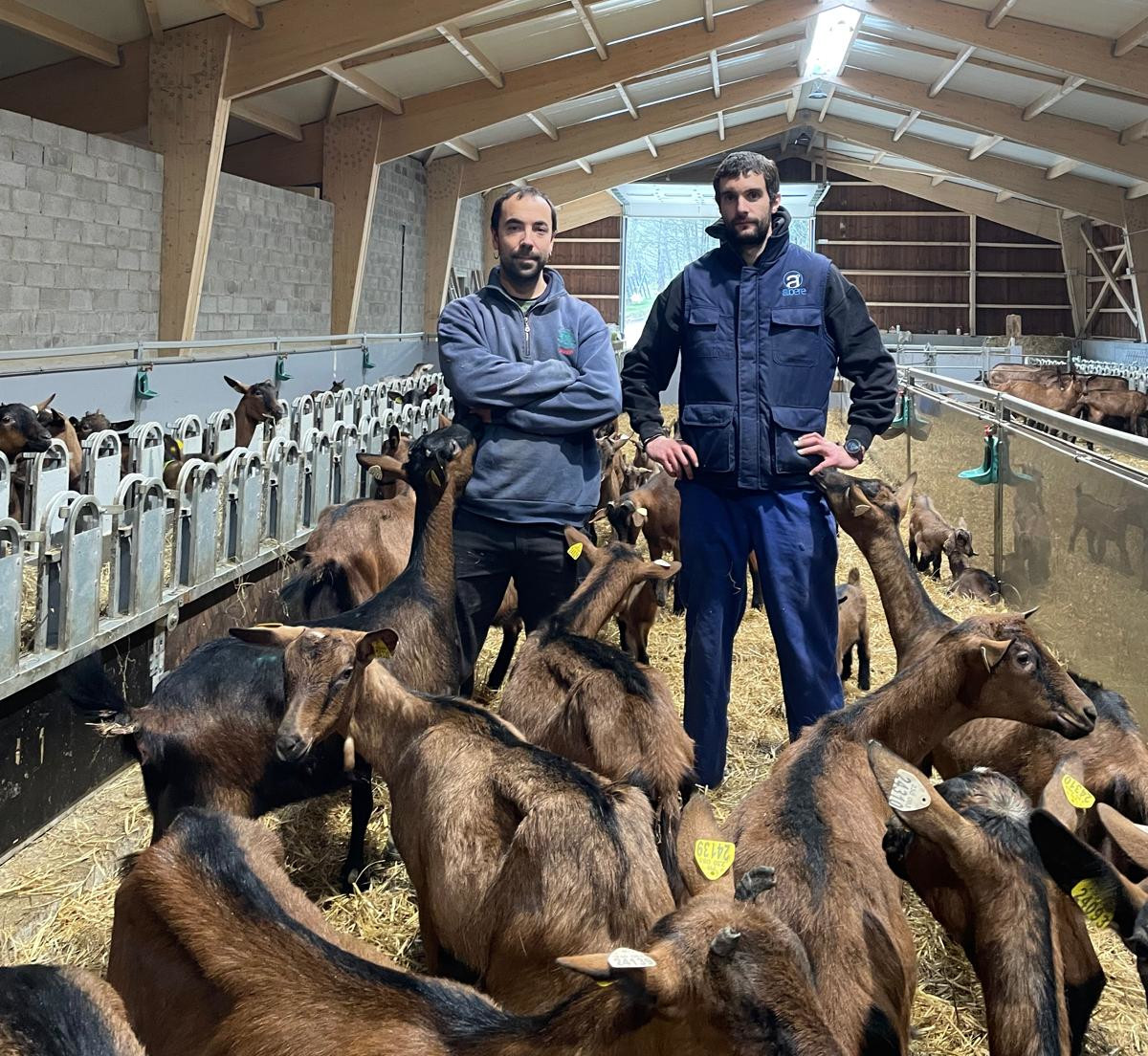If you can't get the school up to the hamlet, the hamlet down to school...
- The Alavesa Agricultural School project has been under way for more than ten years, driven by the Hazi Foundation in collaboration with several producers. In these times when children and young people are increasingly disconnected from the rural world, it is more necessary than ever to create spaces for mutual knowledge and contact between both worlds, and that is why the project was launched. “The objective of the project is to make life known to the students in the rural environment, for which the producers go to the schools to give workshops,” explains Alavés beekeeper Sergio Martínez de Rituerto. Since the first years he has been involved in the project.

There are currently about ten producers involved in the project, although during this decade many farmers and farmers have gone through it. Each course offers between 40 and 50 workshops in schools across the country: “We move to all schools that show interest in the initiative, throughout Álava,” he explains.
The producers and drivers involved in the project meet twice or three times a year to jointly organise and concretize what they will work. “We bring together people of different types of production: cattle barns, vegetable producers, in a more intensive or eco-friendly model, queseros, winegrowers…”. They are all family productions, and they consider it important that it is the producers themselves who attend classes, who speak first person. “The main objective is to raise awareness of the importance of keeping live nearby productions, although each producer organizes our own activity”.
Every year about 1,000 students
The program is aimed at third-year elementary students, 11 and 12 years old. In previous years, producers also met young people between the ages of 8 and 12. “Each course goes through our workshops between 900 and 1,000 students,” explains the beekeeper. From one year to the next, producers rotate among themselves so that students know more about one activity.
“It varies a lot from school to school, but in general, and especially in the city, we perceive that children live very disconnected from the countryside. That’s why we think it’s important to see that there is the rural environment and its inhabitants to learn who and how food is produced.”
Duela lau urte abiatu zuten Azpeitian Enkarguk proiektua, Udalaren, Urkome Landa Garapen Elkartearen eta Azpeitiako eta Gipuzkoako merkatari txikien elkarteen artean. “Orain proiektua bigarren fasera eraman dugu, eta Azkoitian sortu dugu antzeko egitasmoa, bere izenarekin:... [+]
Donostiako Amara auzoko Izko ileapaindegi ekologikoak 40 urte bete berri ditu. Familia-enpresa txikia da, eta hasieratik izan zuten sortzaileek ile-apainketan erabiltzen ziren produktuekiko kezka. “Erabiltzaileen azalarentzat oso bortzitzak dira produktu gehienak, baina... [+]
Ubidekoak (Bizkaia) dira Imanol Iturriotz eta Aritz Bengoa gazteak. “Lagunak gara txikitatik, eta beti izan dugu buruan abeltzaintza proiektu bat martxan jartzeko ideia”, azaldu du Iturriotzek. Nekazaritzari lotutako ikasketak izan ez arren, baserri munduarekin eta... [+]
Iruñean bizi ziren Iñaki Zoko Lamarka eta Andoni Arizkuren Eseberri gazteak, baina familiaren herriarekin, Otsagabiarekin, lotura estua zuten biek betidanik. “Lehen, asteburuetan eta udan etortzen ginen eta duela urte batzuk bizitzera etorri ginen”, dio... [+]
Gipuzkoako hamaika txokotatik gerturatutako hamarka lagun elkartu ziren otsailaren 23an Amillubiko lehen auzo(p)lanera. Biolur elkarteak bultzatutako proiektu kolektiboa da Amillubi, agroekologian sakontzeko eta Gipuzkoako etorkizuneko elikadura erronkei heltzeko asmoz Zestoako... [+]
Emakume bakoitzaren errelatotik abiatuta, lurrari eta elikadurari buruzko jakituria kolektibizatu eta sukaldeko iruditegia irauli nahi ditu Ziminttere proiektuak, mahai baten bueltan, sukaldean bertan eta elikagaiak eskutan darabiltzaten bitartean.








